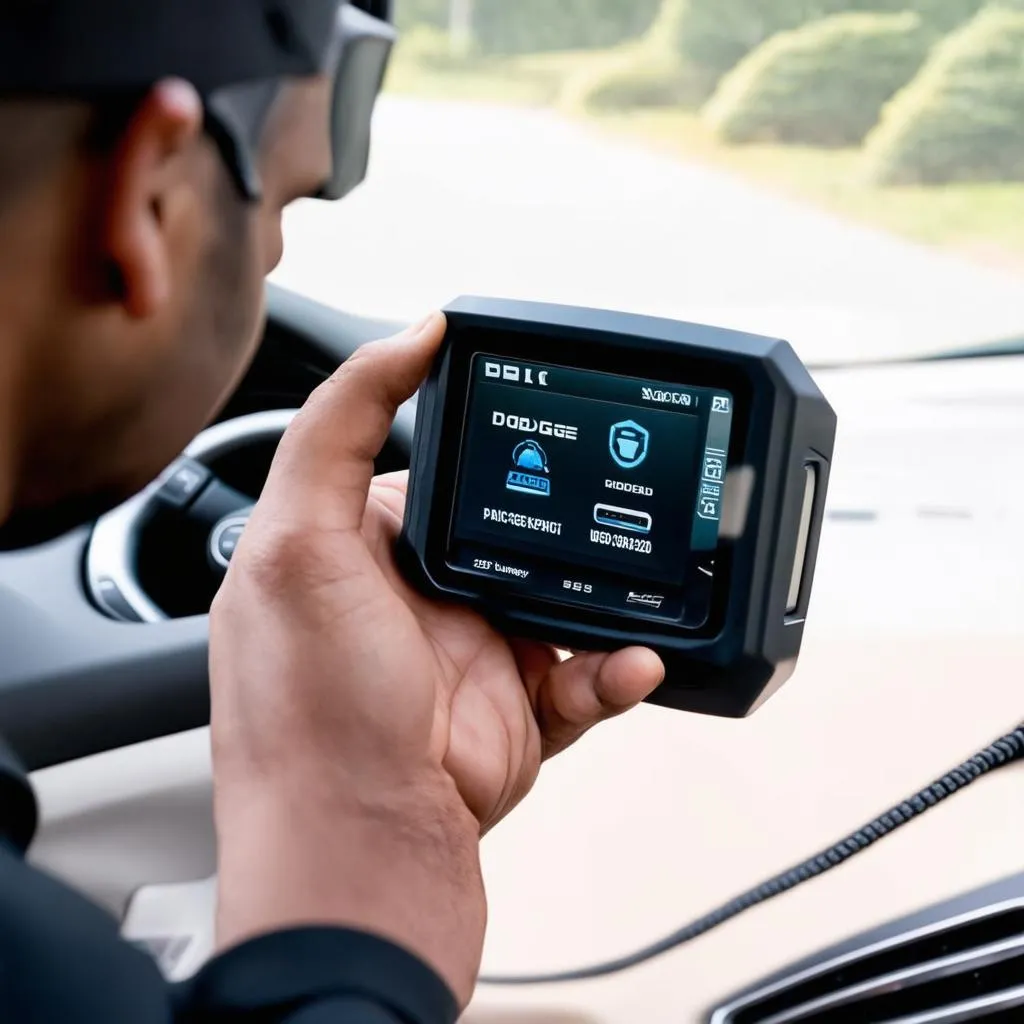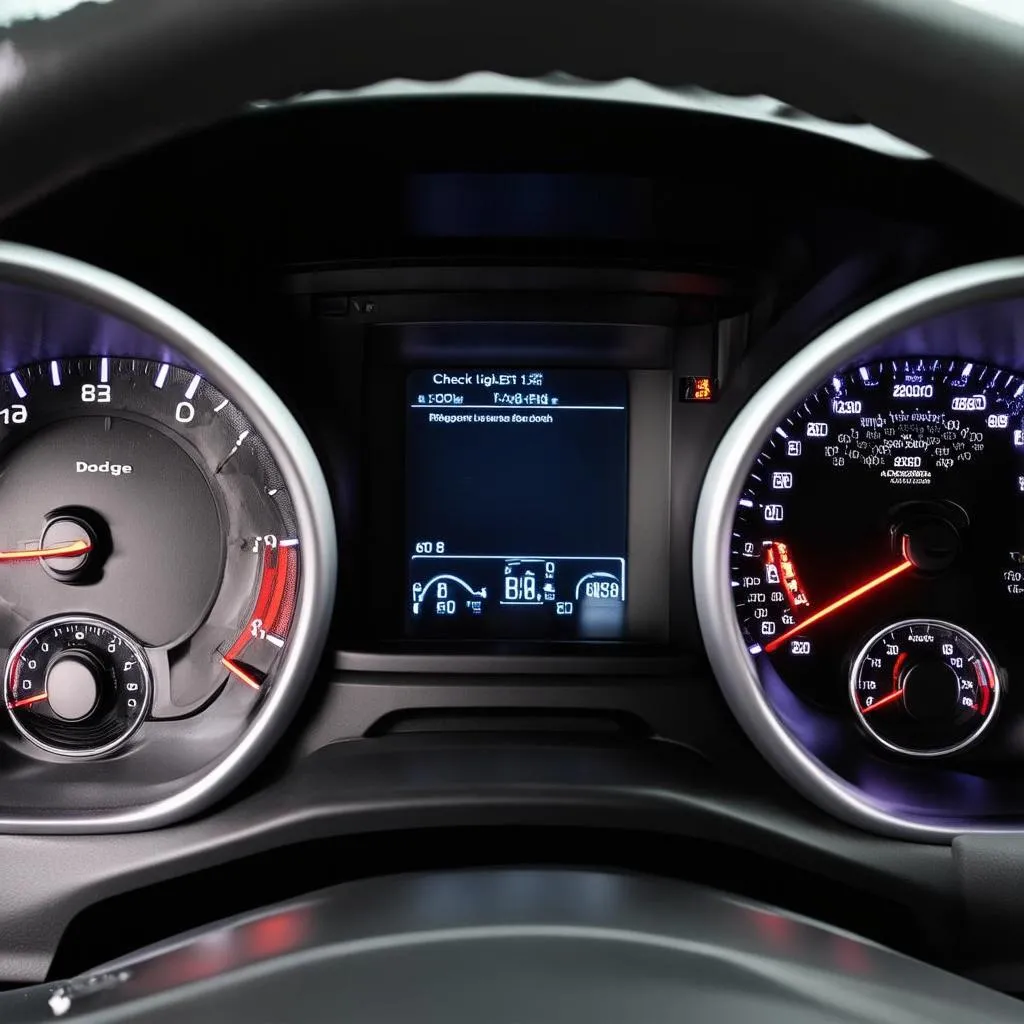Ever found yourself stranded on the side of the road with a flashing check engine light and a Dodge Journey that won’t cooperate? You’re not alone! This is a common scenario for many Dodge Journey owners, especially when the dreaded “OBD” code pops up on their dashboard. But, fear not! We’re here to break down what OBD means for your Dodge Journey, how to understand those codes, and what steps you can take to get back on the road.
What Does “OBD” Mean for Your Dodge Journey?
“OBD” stands for On-Board Diagnostics, and it’s essentially a computer system in your Dodge Journey that monitors its own health. Think of it as a built-in mechanic that keeps an eye on everything from your engine’s performance to your emissions system. When your Dodge Journey encounters a problem, the OBD system stores a code that indicates what’s wrong. These codes can provide valuable clues to mechanics and, with the right information, can even help you troubleshoot issues yourself!
Understanding OBD Codes: The Key to Your Dodge Journey’s Health
OBD codes can seem like a foreign language, but once you understand the basics, they can be incredibly helpful. Codes typically consist of a series of letters and numbers, such as P0300 or B1234. The first digit or letter indicates the general category of the issue, while the remaining digits point to a specific problem. For example:
- P usually refers to Powertrain issues, which include your engine, transmission, and emissions system.
- C indicates Chassis problems related to your brakes, steering, and suspension.
- B represents Body issues, which affect features like your lights, windows, and door locks.
How to Access OBD Codes on Your Dodge Journey
You can access OBD codes using a special tool called an OBD scanner. These scanners connect to your Dodge Journey’s OBD port (often located under the dashboard) and read the stored codes. You can buy a basic OBD scanner for your Dodge Journey online, or you can visit a mechanic who can use a more advanced scanner to diagnose the issue.
Here are some common questions related to accessing OBD codes on your Dodge Journey:
Where is the OBD port on my Dodge Journey?
The OBD port on your Dodge Journey is usually located under the dashboard, near the steering wheel. It’s a small rectangular socket with a 16-pin connector. If you’re having trouble finding it, consult your owner’s manual or a reliable online resource for a diagram of your Dodge Journey’s specific model.
What type of OBD scanner do I need for my Dodge Journey?
For basic OBD code reading, any generic OBD2 scanner will work with your Dodge Journey. However, if you’re looking to perform more advanced diagnostics or reset codes, you’ll need a specialized scanner that’s compatible with your Dodge Journey’s specific model year and engine type.
Can I use a smartphone app to read OBD codes on my Dodge Journey?
Yes, there are various smartphone apps that can connect to your Dodge Journey’s OBD port and read codes. However, these apps may not be as comprehensive or reliable as a dedicated OBD scanner. Some apps might even have limitations depending on your Dodge Journey’s model year and specific features.
Interpreting Dodge Journey Obd Codes
Once you have the OBD code, you can use online resources or a repair manual to understand its meaning. This will help you determine the potential cause of the issue and guide you toward the most appropriate solution.
For example, if your Dodge Journey’s OBD scanner displays the code “P0300,” this typically indicates a misfire in one or more cylinders.
A misfire can be caused by various factors, such as:
- Faulty spark plugs
- Damaged ignition coils
- Fuel delivery issues
- Problems with your air intake system
By understanding the code, you can begin to narrow down the potential causes and take the necessary steps to troubleshoot the problem.
Here are some frequently asked questions about interpreting Dodge Journey Obd codes:
What does it mean when my Dodge Journey’s check engine light is flashing?
A flashing check engine light on your Dodge Journey is a serious warning. This often indicates a misfire that can potentially damage your engine if not addressed promptly. It’s crucial to stop driving your Dodge Journey immediately and have it checked by a mechanic as soon as possible.
Can I reset the OBD code myself?
You can usually reset the OBD code using a scanner, but this doesn’t actually fix the problem. If the underlying issue persists, the code will reappear.
What should I do if I get an OBD code that I don’t understand?
If you encounter an unfamiliar OBD code, it’s best to consult a trusted mechanic who can diagnose the issue and provide the appropriate solution.
Troubleshooting Common Dodge Journey Obd Codes
Here are some common Dodge Journey OBD codes and their potential causes:
- P0300: Random/Multiple Cylinder Misfire Detected – As mentioned earlier, this could be due to faulty spark plugs, ignition coils, or fuel delivery issues.
- P0171: System Too Lean (Bank 1) – This usually signifies a problem with your fuel system, like a faulty oxygen sensor or a clogged fuel filter.
- P0420: Catalyst System Efficiency Below Threshold (Bank 1) – This code points to a problem with your catalytic converter, which could be caused by a faulty oxygen sensor, a misfire, or a clogged exhaust system.
- P0446: Evaporative Emission Control System Vent Valve Stuck Closed – This indicates a problem with your car’s EVAP system, which can cause fuel vapors to leak into the atmosphere.
Getting Back on the Road: Repairing Your Dodge Journey
Once you have identified the problem using OBD codes, you can take the following steps to repair your Dodge Journey:
- Consult your owner’s manual: Your Dodge Journey’s owner’s manual may provide additional information about troubleshooting common OBD codes.
- Seek professional help: If you’re uncomfortable working on your Dodge Journey, it’s best to take it to a mechanic for diagnosis and repair.
- Replace faulty parts: Once the problem has been identified, you may need to replace faulty parts like spark plugs, oxygen sensors, or fuel filters.
Here are some additional tips for keeping your Dodge Journey in good working order:
- Regular maintenance: Follow your Dodge Journey’s recommended maintenance schedule to prevent minor issues from turning into major problems.
- Use quality parts: When replacing parts, use OEM (Original Equipment Manufacturer) parts or high-quality aftermarket parts to ensure proper fit and function.
- Be proactive: If you notice any unusual symptoms or warning lights, don’t ignore them. Address them promptly to prevent more serious problems.
Need Help with Your Dodge Journey Obd Codes?
If you’re still struggling to decipher those cryptic OBD codes or need expert assistance with repairing your Dodge Journey, don’t hesitate to reach out to us! Our team of automotive specialists is available 24/7 to help you diagnose and resolve any OBD-related issues. We can also guide you through installing the right diagnostic tools for your Dodge Journey, making sure you have the information you need to keep your vehicle running smoothly. Connect with us via Whatsapp at +84767531508.
 Dodge Journey OBD Scanner
Dodge Journey OBD Scanner
 Dodge Journey Mechanic
Dodge Journey Mechanic
 Dodge Journey Dashboard
Dodge Journey Dashboard
We’re here to ensure you get back on the road quickly and confidently.
Please note: This information is for general guidance only. Always consult your Dodge Journey’s owner’s manual or a qualified mechanic for specific advice.